TechCrunch
TechCrunch
Apple continually cited section 4.3 of its App Store Review Guidelines in the majority of Struck’s rejections, with the exception of two that were unrelated to the app’s purpose. (Once, it was rejected for use of a broken API. Another rejection was over text that needed correction. It had still called itself a “beta.”)
The 4.3 guideline is something Apple wields to keep the App Store free from what it considers to be clutter and spam. In spirit, the guideline makes sense, as it gives Apple permission to make more subjective calls over low-quality apps.
Today, the guideline states that developers should “avoid piling on to a category that is already saturated,” and reminds developers that the App Store has “enough fart, burp, flashlight, fortune telling, dating, and Kama Sutra apps, etc. already.”
In the document, Apple promises to reject anything that “doesn’t offer a high-quality experience.”
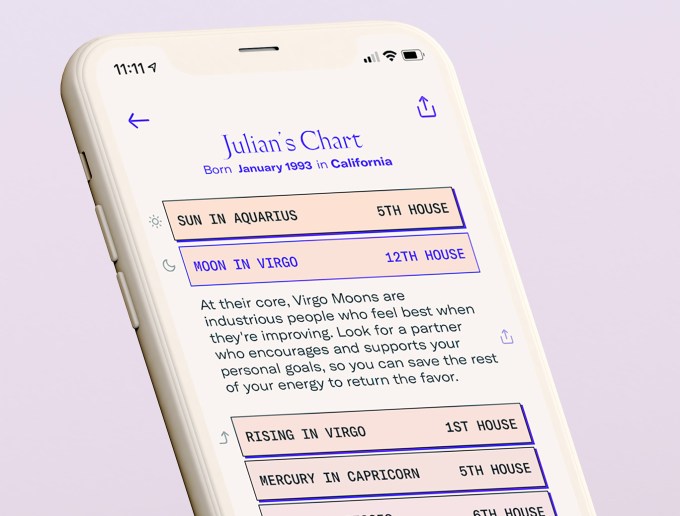
Image Credits: Struck
This guideline was also updated in March to further raise the bar on dating apps and create stricter rules around “fortune-telling” apps, among other things.
Struck, unfortunately, found itself in the crosshairs of this new enforcement. But while its app may use astrology in a matchmaking process, its overall design and business model is nowhere close to resembling that of a shady “fortune-telling” app.
In fact, Struck hasn’t even implemented its monetization model, which may involve subscriptions and à la carte features at a later date.
Rather, Struck has been carefully and thoughtfully designed to provide an alternative to market leaders like Tinder. Built by a team of mostly women, including two people of color and one LGBTQ+ team member, the app is everything mainstream dating apps are not.
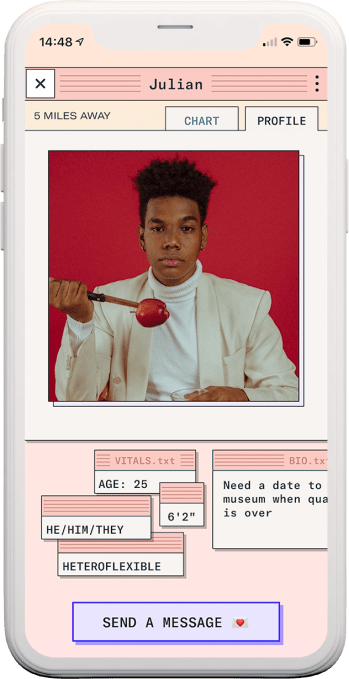
Image Credits: Struck
Struck doesn’t, for example, turn online dating into a Hot-or-Not style game. It works by first recommending matches by way of its understanding of users’ detailed birth charts and aspects. But you don’t have to be a true believer in astrology to enjoy the experience. You can use the app just for fun if you’re open-minded, the company website says. “Skeptics welcome,” it advertises.
And while Tinder and others tend to leverage psychological tricks to make their apps more addictive, Struck aims to slow things down in order to allow users to once again focus on romance and conversations. There are no endless catalogs of head shots to swipe upon in Struck. Instead, it sends you no more than four matches per day and you can message only one of the four.
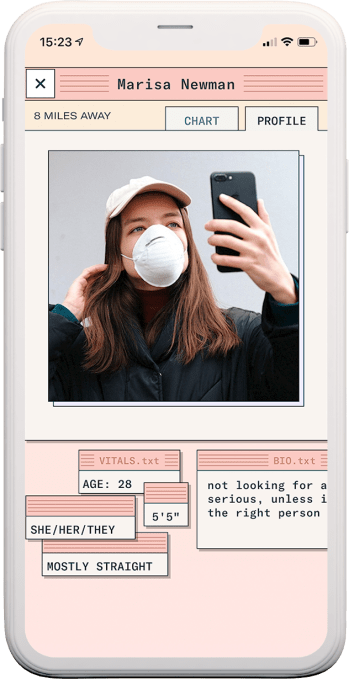
Image Credits: Struck
The app’s overall goal is to give users time to analyze their matches’ priorities and values, not just how they appear in photos.
If anything, this is precisely the kind of unique, thoughtfully crafted app the App Store should cater to, not the kind it should ban.
“We come from an Apple background. We come from a tech background. We were very insistent on having a good, quality user interface and user experience,” explains Struck co-founder and CEO Rachel Lo. “That was a big focus for us in our beta testing. We honestly didn’t expect any pushback when we submitted to the App Store,” she says.
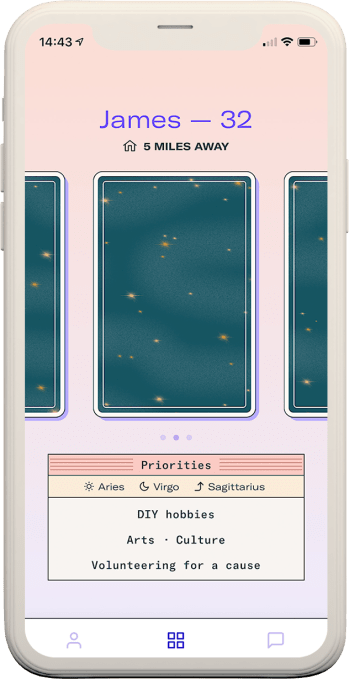
Image Credits: Struck
But Apple did push back. After first submitting the app in May, Struck went through around nine rounds of rejections where reviewers continued to claim it was spam simply for being an astrology-based dating application. The team would then pull out astrology features hoping to get the app approved… with no luck. Finally, one reviewer told them Struck was being rejected for being a dating app.
“I remember thinking, we’re going to have to shut down this project. There’s not really a way through,” recounts Lo. The Struck team, in a last resort, posted to their Instagram page about their struggles and how they felt Apple’s rejections were unfair given the app’s quality. Plus, as Lo points out, the rejection had a tinge of sexism associated with it.
“Obviously, astrology is a heavily female-dominated category,” she says. “I took issue with the guideline that says ‘burps, farts and fortune-telling apps.’ I made a fuss about that verbiage and how offensive it is for people in most of the world who actually observe astrology.”
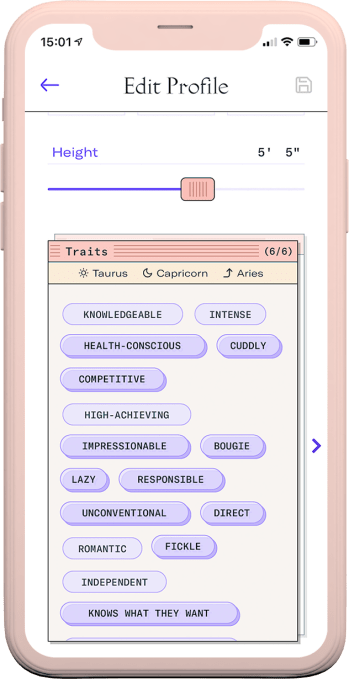
Image Credits: Struck
Despite the founders’ connections within the technology industry, thanks to their ex-Apple status and relationships with journalists who would go on to plead their case, Struck was not getting approved.
Finally, after several supporters left comments on Apple VP Lisa Jackson’s Instagram where she had posted about WWDC, the app was — for unknown reasons — suddenly given the green light. It’s unclear if the Instagram posts made a difference. Even the app reviewer couldn’t explain why the app was now approved, when asked.
The whole debacle has soured the founders on the way Apple today runs its App Store, and sees them supportive of the government’s antitrust investigations into Apple’s business, which could result in new regulations.
“We had no course of action. And it felt really, really wrong for this giant company to basically be squashing small developers, says Lo. “I don’t know what’s going to become of our app — we hope it’s successful and we hope we can build a good, diverse business from it,” she continues. “But the point was that we weren’t even being given the opportunity to distribute our app that we had spent nine months building.”
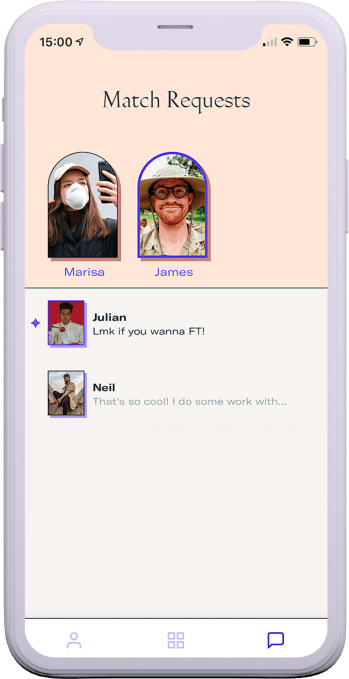
Image Credits: Struck
Though Apple is turning its nose up at astrology apps, apparently, you don’t have to take astrology to heart to have fun with apps like Struck or those that inspired it, such as Co-Star. These newer Zodiac apps aren’t as obsessed with predicting your future as they are with offering a framework to examine your emotions, your place in the world and your interpersonal relationships. That led Co-Star to snag a $5 million seed round in 2019, one of many astrology apps investors were chasing last year as consumer spend among the top 10 in this space jumped 65% over 2018.
Struck, ultimately, wants to give the market something different from Tinder, and that has value.
“We want to challenge straight men since it is — quote unquote — a traditionally feminine-looking app,” says Lo. “For us, it’s 2020. It’s shocking to us that every dating app looks like a slot machine. We want to make something that has a voice and makes women feel comfortable. And I think our usership split between the genders kind of proved that.”
Struck is live today on the App Store — well, for who knows how long.
It initially caters to users in the Bay Area and LA and will arrive in New York on Friday. Based on user feedback, it will slowly roll out to more markets where it sees demand.
]]>


